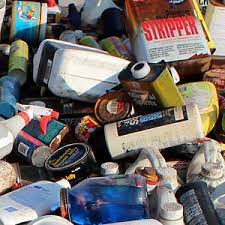Domestic Hazardous Waste:

Segregation of domestic hazardous waste remains a distant dream for most Indian cities in absence of robust framework and infrastructure.
- Indore is the only city in the country that safely handles its domestic hazardous waste.
- Domestic Hazardous Waste is any chemical or product that can cause serious illness or pose an environmental or health threat if improperly stored, transported or disposed of.
- When hazardous waste is disposed of in the trash, down the drain, or on the ground, our water and soils can be contaminated or trash collectors can be harmed.
- Most products labeled dangerous, flammable, poison, combustible and corrosive are considered hazardous waste.
- Examples: Auto batteries, Fertilizers, Batteries (non-alkaline), Paint.
- In 2020, a significant level of toxic heavy metals and persistent organic contaminants like pesticides have been found by the researchers from the Indian Institute of Technology (IIT) Delhi and IIT Bombay.
- They analysed fine particles from eight dump sites across the country.
- Household waste is governed by the rules outlined in the Solid Waste Management Rules 2016.
- These rules divide household waste into dry and wet waste.
- Wet waste is categorised as any waste that decomposes or degrades by itself.
- All other waste falls into dry waste according to the rules.




